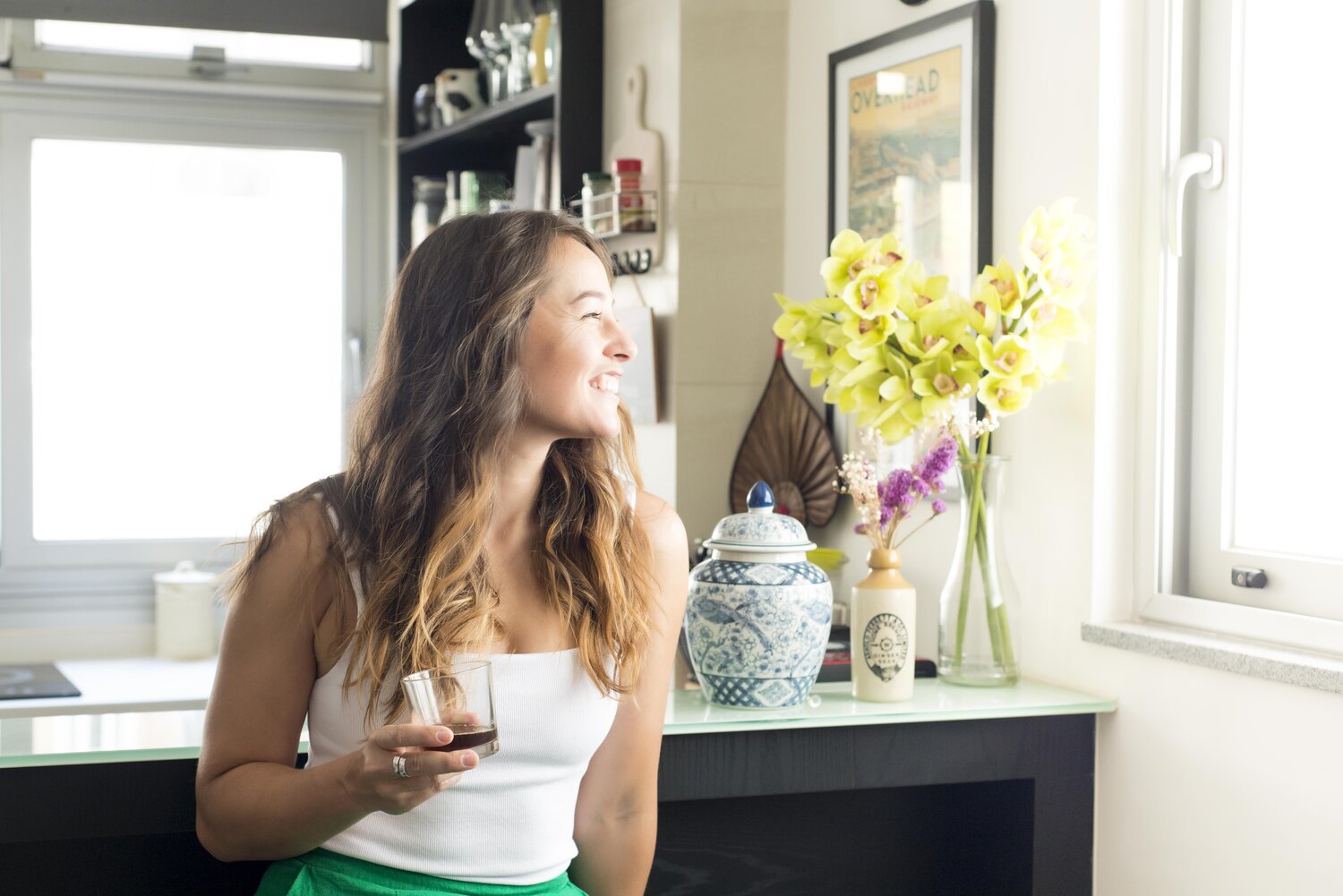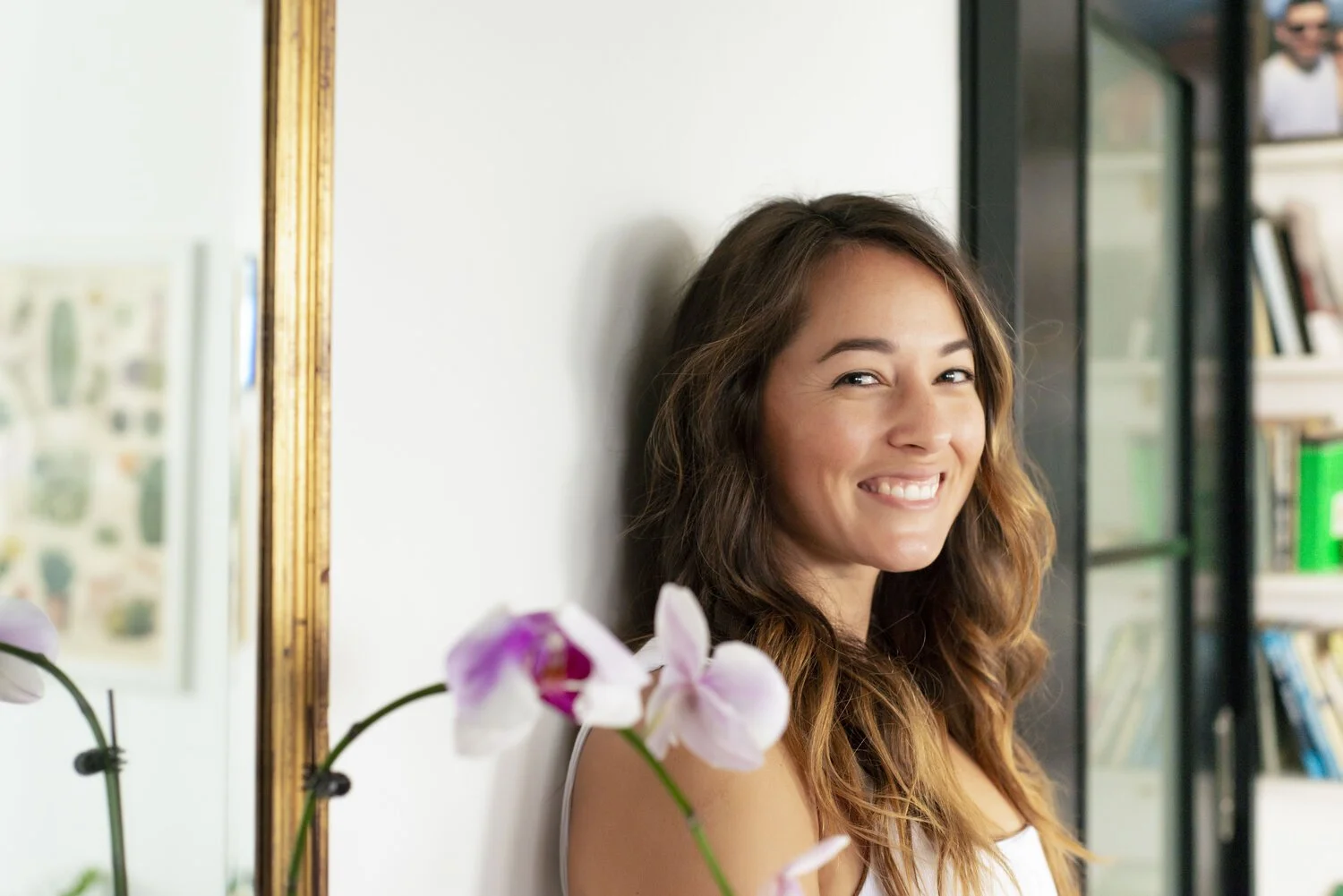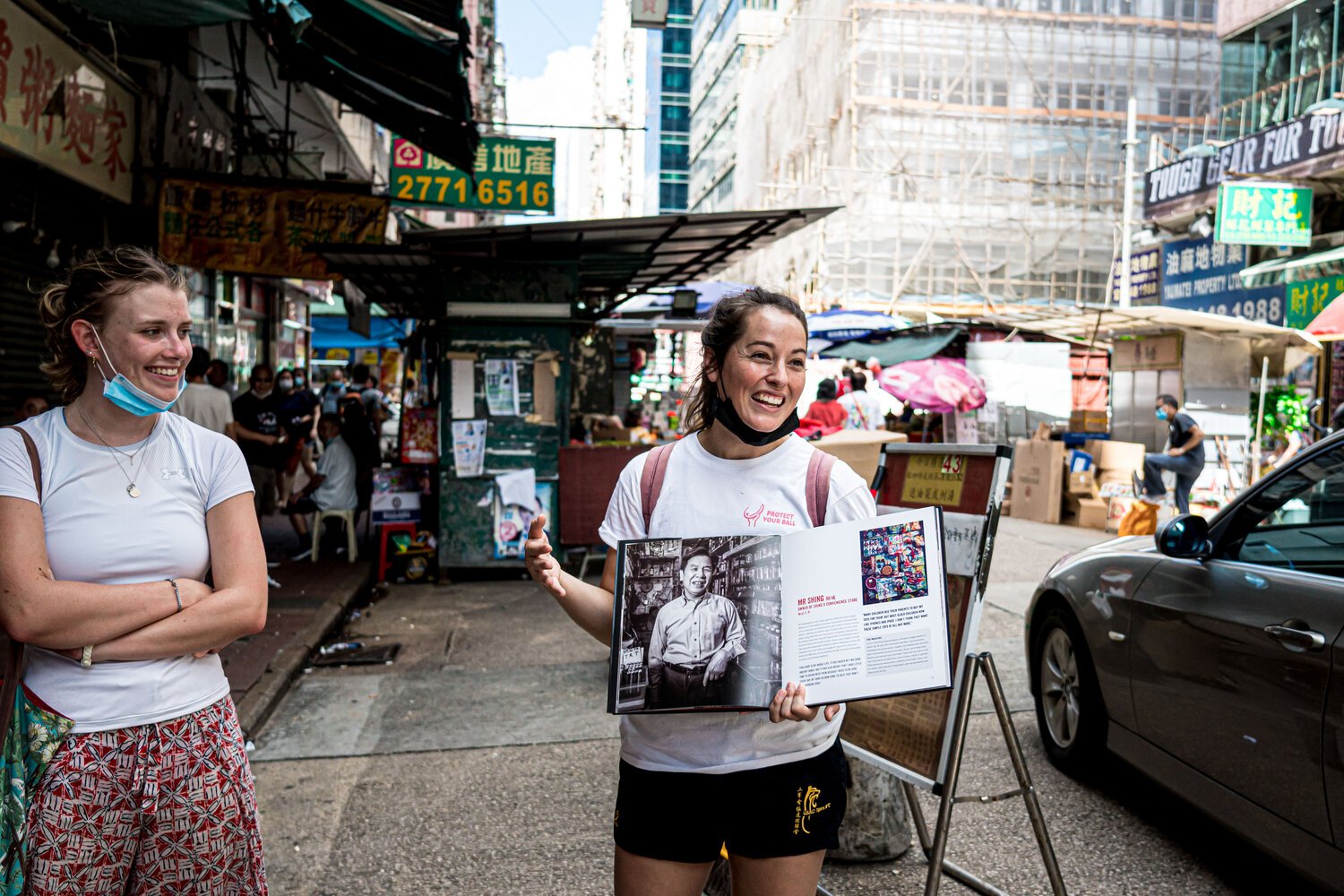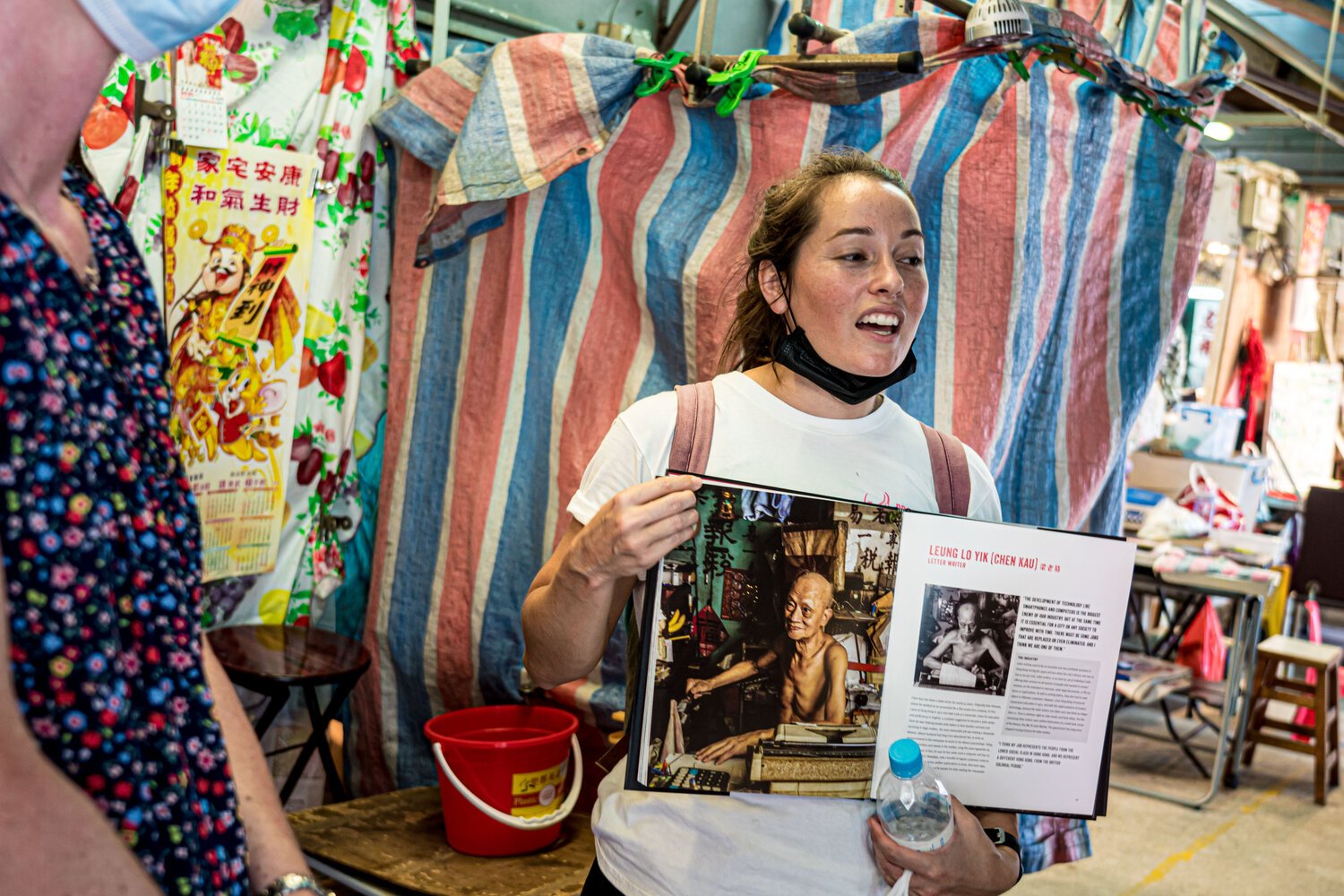Championing the Sunset – Lindsay Varty
Three things show me for the cowardly custard I am - cooking for chefs, photographing photographers, and writing about writers. The last one is particularly prescient because up until this year I hadn’t written for an audience since University. I first met Lindsay through The American Women’s Association (AWA) Hong Kong. I’ve been in Asia for almost 8 years, and joining AWA in first Manila and now here has been fundamental to my social and emotional wellbeing. One of my favourite things about the AWA is the activities and talks they offer to members, and it was through one of these events I first learned about Lindsay and Sunset Survivors.
The daughter of a Macanese mother and British Father, Lindsay was encouraged as a child to exercise her brain as much as her body, being the youngest ever recruit for the National Hong Kong 7s team. In 2018 she released a coffee table book called Sunset Survivors – a compilation of interviews and photographs featuring the last bastions of Hong Kong’s traditional businesses and crafts; everything from face threaders, knife sharpeners, bamboo birdcage makers and more.
I’d hoped to photograph Lindsay in some of her favourite HK locations, but due to the third wave of Covid 19, we meet instead at her home, surrounded by art, books and various pieces purchased from the craftsmen and women featured in Sunset Survivors. It is a place of history and comfort, with testament to Lindsay and her husband Matt’s love of travel, fitness, and food. Lindsay’s charm and effusiveness is palpable, and we chat eagerly about third culture kids, sports, and her love of storytelling.
J: Were you a storybook kid? Did you always want to write?
“I’ve always loved reading and writing. When I was young I would write my parents the most ridiculous stories or just retell ones I knew. This makes me sound really old, but we had a computer and all it had on it was Word. I remember retyping Goldilocks in my own words, and the spelling was terrible but I loved it. Then I would make up my own stories, and then I started writing really bad poems….”
J: A bit of teenage angst?
“Of course! Then it just developed. I studied French, Languages, and Literature when at University in Nottingham, and I’d always loved history. But it wasn’t until I came home that I started working for Hong Kong Magazine that I developed it as a career. Under that company I wrote for a few other magazines, and then a lot of online content. This was all at the same time as rugby, but I just really loved it, and that’s when I knew I wanted to write a book. I actually did a book about rugby for a sports marketing company before I went on to Sunset Survivors. So - lots of writing, I’ve always been writing.
J: On your rugby career – were you always sporty?
“My dad is super sporty. Mum is not, but she is very supportive of us being sporty. We were sporty kids - I played hockey, netball, rugby, athletics, swimming, water polo, I did everything! I just loved it all. I liked being active. But I really enjoyed rugby.
“When I was 17, I got asked to play for the Hong Kong rugby team. I remember my first tour was to Uzbekistan – it was a huge honour, and from that moment, I knew rugby was the sport for me”.
J: I can’t imagine that much pressure so young.
It’s a lot. When you play for a national team, you have to put so much into your training that you don’t have that much time for anything else. Then when I went to university, you have to choose one sport, because the trainings are all on the same night, so I naturally picked rugby. All my teammates were just so lovely and actually on all the different sports teams I’ve ever been in, rugby girls just seem to be the most chilled so I like that.
J: We spoke once about what it’s like to be a female in a very male sport – can you speak about some of these experiences you had – positive and negative?
“The Hong Kong Rugby Union & Sports Institute were very good at treating us equally in many, many different ways. But of course, rugby has for many years been seen as more of a male sport. Some more traditional acquaintances would say “Why don’t you hurry up and get married, have a baby? Aren’t you worried that you’ll be ugly? You’ll get a black eye!” or “You’ll be too bulky, too muscly” But you have to laugh it off and not care what others think. I would reply - “Come and watch, see what it’s like” and I think that opened some eyes. All my grandparents were very proud of the fact that I played rugby - they didn’t necessarily understand it at all, but they were very supportive.” I play for me anyway, no one else.
I try to imagine a very young Lindsay running onto the pitch, and I also feel that protective streak and fear that her family must have felt.
J: Your brother also plays rugby – did you feel your parents supported his athletic career more fervently?
“My dad would play sports with us - we would play cricket or simply throw a ball around with us. There was never any difference between the way that he would play sport with my brother and the way that he played sport with me. I never grew up with any belief that men and women were different in sport. To me, a girl and a boy could do the exact same things in the sport if they wanted to. So when I wanted to play rugby, it was never a question as to whether or not that was okay or normal - good or bad. Mum and dad have always been so supportive, they’re the ones at every game with a giant red Hong Kong flag!”
At this point, Lindsay takes me through her phone’s camera roll and shows me a series of photos which look like the aftermath of a street fight. Split lips, swollen, black eyes. Looking at Lindsay’s petite frame and long hair, it’s hard for me to envisage her not just taking injuries like this, but also potentially causing them. “I’ve had quite a few shoulder injuries - you can see all the scars here, the girls have had black eyes, broken noses, it’s not a pretty sport.”
J: How long did you play for the National Team?
“7 years as a full time professional for the HK 7s team, which is a long career. For professional sports you tend to have a fairly short career because you’re only in your prime for a short period of time.”
J: And you’ve only recently retired?
“Yes, just in April - but I still play for my club team, the USRC Tigers and for the National 15s team. I still love playing social rugby, which is less intense but still fun.. Playing for a national team is a full time job. We would train four days a week at the Hong Kong Sports Institute, train in the evenings two nights a week, and then play games on Saturdays. I really only had Sunday off to relax, but by that point, you’ve just finished a game so you’re all beaten up. It’s a nice feeling to relax and recover from all your injuries. But Monday morning, you’re back at it again! “
J: That’s an intense seven years.
“I loved it though, I really loved every moment of it. But my body was tired – I’d had a couple of quite serious injuries and it was time to move on and do something else.”
J: You are so passionate about Hong Kong and Hong Kong culture - it’s obviously very close to your heart. You tell a beautiful story of what catalysed Sunset Survivors…
“Throughout my childhood, my father would come home with a white flower in his top pocket. I went traveling when I was 21, and when I came back and was at my parents, I noticed it again – this white flower in his top pocket at the end of the day. He would buy these white flowers from a little man who was at the bottom of Lan Kwai Fong. Imagine in amongst these crowds of Hong Kong businessmen and women, going to and from their offices, all modern and these billion-dollar shop windows like, Coach, Gucci, Prada. In amongst it all – this elderly Chinese man in traditional linen clothes with a paper tray around his neck, selling little white flowers for $10 a pop.
“One day Dad came home and he didn’t have one. I wondered why. The next day, I went down the hill where I would walk past the man on my way to work in the morning… and he just wasn’t there. The rest of the world continues, all the businessmen and women are still going to and from their offices. The shop windows are still there, everything’s the same, except that this one man is gone. He had obviously passed away, and he would never be replaced - no one’s aspiring to become a white flower seller. He’s probably got children, grandchildren who’ve gone to school or university. They’ve got better options, better jobs and can earn more money, but it does mean that we are losing this slice of Hong Kong culture, and it’s often either ignored, or we don’t even realize that it’s gone.”
“That was the moment I realized that I wanted to document these people’s stories, because I’m not trying to revive them, I’m not trying to make anyone go into white flower selling, I’m just trying to honour them, respect them, and recognize what they’ve done for Hong Kong culture before they’re gone forever, and we don’t even realize
J: There’s a saying that when a man dies, a library burns, and I think as we get older and see our parents ageing, it’s very confronting to think that collective memory will be gone.
“Exactly. Every single person has an infinite number of stories to tell. When someone disappears, when someone passes away like you said, the library burns, they take with them all of their stories and all of their experiences. Only when a grandparent passes away, do you suddenly wish that you’d asked all of these questions. So why wait? I wanted to ask these people about their stories and understand how they’ve seen Hong Kong change and their careers change, before they were gone forever. “
J: Hong Kong is also so rapidly evolving. If you look back to Bruce’s Lee’s films, and think it was only decades ago – these people have seen so much in their lifetimes. It must be head-spinning to come from an agrarian, humble background, to living in this industrialized global city.
“Exactly. My Grandfather was a POW in Sham Shui Po. He spent three and a half years in that camp. He had so many stories to tell about his experience. So when I walk around that area or take people on tours, it has a whole other meaning to me as well.”
J: Sunset Survivors is such a beautiful testament to Hong Kong’s history – who’s your favourite?
“Oh – tough question! When I first did the interviews, the “Letter Writer” , Mr. Leung, was my favourite, because it was an industry in Hong Kong that I didn’t know much about.”
J: I had never heard of it until I met you.
“Education wasn’t compulsory in Hong Kong until the 1970s. Around 40% of the population was illiterate. So if you grew up in a family that didn’t know how to read and write, you often didn’t associate with people that could. You’d have to seek out the help of a letter writer to help correspond with relatives in mainland China or overseas, or write to the government for welfare applications, for job roles - all sorts of things. These letter writers were very, very well regarded, they were very well-educated people. It was a very noble job, and you would earn a fair amount of money from it.”
J: So it wasn’t just noble, it was lucrative?
“Very - and they would be stationed all over Hong Kong around administrative buildings. In Yau Ma Tei for example, there were about 30 to 40 letter writers stationed all around the old water pump station and the engineer’s office. Slowly, as everybody got a better education and could read and write, the letter writers business just disappeared as they weren’t needed anymore. Today there are only 6 left in Hong Kong.”
J: I take my literacy completely for granted. It’s not even second nature – it’s just nature.
“Of course. They would do translations as well, but now we have Google Translate, or you can find a friend that can help you translate something – it’s so easy. Mr. Leung [the letter writer] is Vietnamese. He can speak five languages. I remember we had this French conversation in the middle of the Yau Ma Tei jade market - this random Gwei mui talking to some ancient Chinese-Vietnamese man behind a typewriter in French! It was so amazing. He’s still around, but his family finally persuaded him to retire because he was finding it quite difficult to open up the shop every day and do all the work.”
J: The tenacity, integrity and work of these people – they’re just… so tough.
“I think that’s what Hong Kong values are. To be very driven and have strong family values is the main thing in Hong Kong, and the tenacity, resilience, and persistence of Hong Kong people -despite the odds- is key. That’s something that really stands out with everybody I interviewed – the spirit of Hong Kong. It’s personified in these people.”
“My other interview that I love; and I have grown to love this person so much is Mrs. Ho, the scales lady. She’s hilarious. And she personifies all of that. Her shop is over 90 years old. It was her father’s shop. Her children and grandchildren have urged her to retire, but she refuses because that shop is the last memory of her father. She says, “Why would I want to retire and sit around and do nothing in a flat with my whole family?”
J: She wouldn’t know what to do with herself.
“She says - ‘This is my job, this gives me purpose. This gives me a sense of self-worth, belonging, everything.’ And she opens up her tiny shop— she’s got arthritis in her hands, and struggles. She’s in her early 80’s, although every time I see her she says ‘Don’t tell them. Tell them I’m in my 70s!’ She cracks me up.”
J: I love the juxtaposition of being so hard and tough, but still wanting to remain feminine.
“She is really tough. She makes traditional Chinese weighing scales, and they’re beautiful. The product itself personifies old Hong Kong. She herself is Hong Kong.”
Lindsay pauses – and in that moment I realise Mrs. Ho won’t be here for too much longer.
“Just…everything about her is fantastic. And it’s that boisterous charm of Hong Kong people that she really gives off”.
J: I love that phrase - boisterous charm. It can be intimidating to a Westerner. I’ve always been scared of Dai Pai Dong for that reason - the boisterous atmosphere.
Lindsay laughs and does a fantastic impression of a Dai Pai Dong owner.
“They literally yell – ‘Lei seung at mat yeh - What do you want!?’ No nonsense, no frills - it’s just straightforward blunt - ‘Sit down! Here you go!’ Plastic chairs, plastic tables, nothing fancy, just good food and nice people. That’s a dying industry in Hong Kong too. There were thousands of Dai Pai Dong all around Hong Kong, down every alleyway, every street corner. Today there are only 25 remaining licensed Dai Pai Dong around the city. There are no more licenses being given out, and they can only be passed down once, and they’ve already been passed down. This literally is the last batch of Dai Pai Dong”.
J: It’s the sunset, literally.
“Yes, sunset industries, that’s what it’s all about”
J: You’re very specific that you are not advocating for reviving these industries. How do these business owners feel?
“I was doing walking tours, just taking people to visit these businesses to potentially buy a few things from their shops, get people to know more about it. I think for so many of us, we live in Hong Kong, we say we love Hong Kong culture. But you get to know it even more, it ties you to the city - you get to know more about your home, which for me, develops this love and understanding of Hong Kong culture... and you care about them. You want to help these people; honour their memory and their work. But it was never about trying to revive these industries. I wouldn’t want that…and neither would they. After all the interviews, the main thing they said was, “I don’t want my kids to follow my footsteps and come into this job because I work very long hours, in a very hard job for little pay.” They are so proud of their children who have gone to university and can get higher-paying jobs - that’s their measure of success”
“But they were sad that the skill would be lost forever. They wanted people to know about it, hear about it, and honour their work, but they didn’t necessarily want or think that anybody would become an apprentice.”
“My goal is to try and spread awareness and understanding about what these people have given to Hong Kong culture and Hong Kong society. Hopefully the message is enough to inspire people to see them, not just walk by these people. I mean, how many times have you exited Central MTR and walked past all the shoe shiners?”
J: I’m guilty of this. I think I don’t know how to interact. I feel like an impostor.
“That’s part of it. The language barrier is a problem - you can’t chat if you don’t speak the language. But you’d be surprised at what kind of interaction you could have if you just try their service. They are literally earning a life’s wage from the small service they provide. That’s what they’re relying on. Something as little as getting your boots polished from the shoe shiners - that’s one way you can help. And give them a smile, because the shoe shiner told me that people in the past would sit and chat with her and they’d have a wonderful conversation for the 10 minutes while their shoes were shined. But today, she says that 99% of people just play on their phones while and then walk away. And we’re all guilty of that sometimes, right? We’re all guilty of staring at our phones too much. Talk to people!”
That passion for connection again. I have seen Lindsay on several tours, and the respect and warmth she gives to these people is truly remarkable. Her body language changes – her voice softens. She gives them so much respect, almost deference. And that energy is truly reflected in the reaction of those whose story she shares.
J: One of the key reasons for this project was to give back to this community of women and share these stories and their hopes for the year ahead. It was meant to be quite a hopeful project, but 2020 has been so tough. What are your hopes for the rest of the year?
“Hopefully, this is the rock bottom, so the only way is up, right? Hong Kong people are very resilient, very stoic people. We will hopefully come out of this soon. I hope to be back in schools soon. My main aim is to try and get the young generation of Hong Kong interested in the old generation. So for me, I love going to schools and teaching students about Hong Kong culture, and not just in a boring textbook kind of way. Then maybe on weekends, they can go with their parents to visit some of these people. Maybe they’ll be more interested to learn about Hong Kong and their home. I grew up here and like every third culture kid in Hong Kong, I’ve had to answer that same annoying question “Oh, where are you from?” And when you say, “Hong Kong,” and they go, “But where are you really from?” connecting to Hong Kong culture, makes you feel more at home.
J: So many of the women in this series have brought up the same point.
“Being from Hong Kong is so much more than what you look like - it’s in your heart, and it’s where you feel is home. With Sunset Survivors, my hope is to teach others that no matter what you look like or where you are ethnically from, if you believe Hong Kong is your home, learn more about it and that will tie you to it and give you every reason to know that this is your home.”
As we say our farewells, I think about all that Lindsay has done for her home in sports, in writing and advocacy, and though she feels Hong Kong has been good to her, it may be time for Hong Kong to be grateful for this most committed and special of its daughters.
To learn more about Lindsay:
https://www.instagram.com/sunsetsurvivors/
https://www.instagram.com/lindsvhk/
https://www.facebook.com/sunsetsurvivorshongkong
Special thanks to Susanne West from American Women’s Association Hong Kong - introducing and connecting people is in her DNA. xx
https://www.awa.org.hk/


















